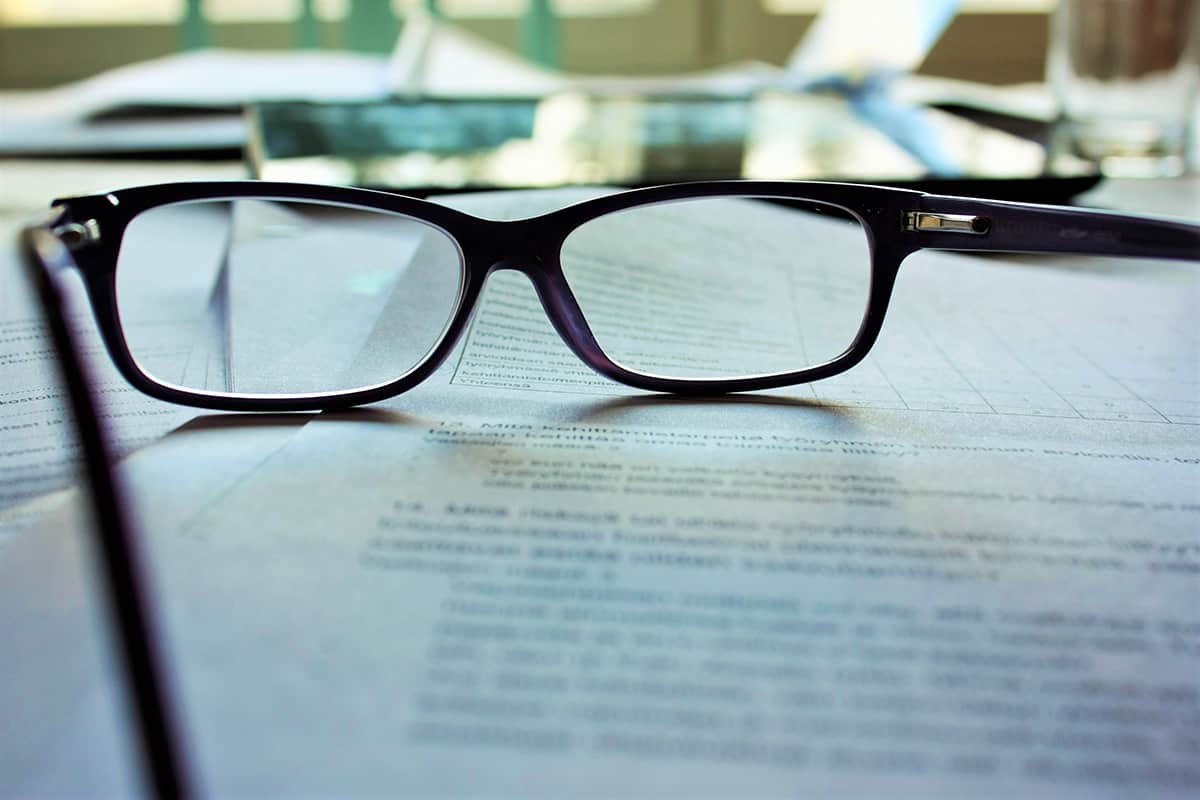
28 Feb Are Deposition Transcripts Confidential or Can The Public View Them?
Deposition Transcripts – Public Or Private?
When you are involved in a legal case, one of the most important things to consider is the transcript of your deposition. This document records everything that was said during the deposition and can be used as evidence in court. Many people assume that these transcripts are confidential, but this is not always the case. In this blog post, we will explore everything there is to know about deposition transcripts.
Are deposition transcripts confidential or can the public view them? The answer isn’t as clear as you think and depends on a lot of variables. In most cases, the transcripts are confidential and not available to the public. However, there are some exceptions to this rule.
For example, if you are a party in the case or involved in the litigation, you may be able to access the transcript. Additionally, if the court orders it, the transcript can be released to the public. It also depends on what stage the case is at, for example during pre-trial discovery depositions are confidential.
However, if the case goes to trial and is settled, the transcripts may become public record in the future. So, what happens if you want to view a deposition transcript but don’t have permission? And what exactly is in a deposition transcript?
All of these questions and more will be covered in this article so keep reading to find the answers!
What Is A Deposition Transcript?
So first, let’s start with what this transcript is. A deposition transcript is a written document that records everything said in a formal legal meeting or hearing.
The person taking notes is called a court reporter who also transcribes each word spoken into text form so it can be read later on by lawyers or judges.
Depositions are used to gather evidence for a case before it goes to trial and they can be requested by either side involved in litigation proceedings, including plaintiffs and defendants alike.
The purpose of depositions is two-fold: firstly, they’re often used during the discovery stage so that both parties can get an idea of what the case is going to look like, and secondly, they can be used as evidence in court.
 What Is Included In A Deposition Transcript
What Is Included In A Deposition Transcript
Now that you know a little more about deposition transcripts, let’s take a closer look at exactly what is included in them. Generally speaking, anything said during the deposition will be included in the transcript.
This includes:
- testimony from witnesses
- any cross-examination or objections that were raised
- the court reporter’s notes
- anything said in the deposition room, including sidebar conversations
It’s important to remember that the transcript is a verbatim account of what was said during the deposition, so it can be quite lengthy. That’s why it’s a good idea to have an attorney review it before using it as evidence in court.
The prosecutor will present a list of all those who were at the deposition and their contact information, as well as any other relevant details. The date and place of the deposition, as well as the name of the court reporter who took down the notes, will also be included.
How Deposition Transcripts Are Recorded
When it comes time for the deposition to officially begin, the recording will begin also. But how are these transcripts produced, exactly?
Court reporters use a stenotype machine to record everything that is said during the deposition. This machine looks similar to a typewriter, but each key has a unique symbol that corresponds to a letter or word.
As the court reporter takes down notes, they will also type these symbols into a computer which will then translate them into text.
A court reporter must be able to type up to 225 words per minute and understand all of the legal terminologies that are being used, so it’s important they have some level of training before becoming a professional.
They also need excellent listening skills as well as attention-to-detail to ensure accuracy when taking down notes during depositions.
When Deposition Transcripts Are Confidential
Now that we have covered the basics, let’s get back to our main question. What are the situations when the transcript is kept confidential? As we mentioned earlier, this depends on a lot of factors including which stage of the case you’re at.
In most cases, depositions are confidential and cannot be released to the public without permission from all parties involved or a court order.
If someone wants access to this type of information then they need consent from everyone present during proceedings first before any disclosure can take place.
Even if it’s just one person who doesn’t want it released then there’s no way for anyone outside those involved in litigation proceedings to view transcripts without going through proper channels.
The only time when transcripts can be accessed by people other than those who were present at the deposition is if they’re ordered by a judge or jury during trial hearings.
But even so, only specific parts may be released according to what’s relevant for the case in question.
 When Deposition Transcripts Are Public Record
When Deposition Transcripts Are Public Record
We’ll now look at when depositions transcripts become public record. In general, this happens if there is a trial and it goes on long enough for both sides to agree to a settlement outside of court.
At which point all documents related to their case including depositions will become part of the public record in order for everyone involved to be able to know what happened.
You can access these transcripts by visiting your local courthouse or contacting an attorney who specializes in litigation matters – but keep in mind that sometimes there’s only so much information available because some parts may have been sealed off due to privacy concerns.
Why Transcripts Are Kept Confidential
Why are these transcripts kept private in the first place? The reason for this is simple: it’s to protect the people involved in the case. Imagine if you were a witness or someone who was deposed and your words were made public.
Not only would that invade your privacy, but it could also jeopardize any future legal proceedings you might be involved in. This is why confidentiality is critical during the deposition procedure. Also, any deposition transcripts being used as evidence need to remain untampered with.
What Happens If Deposition Transcripts Are Shared?
If you’re wondering what happens if someone shares the transcript without permission, they could be held in contempt of court.
That means there would be a hearing and then potentially fines or even jail time for violating any laws regarding privacy during litigation proceedings like depositions.
So as you can see, it’s important that everyone involved in a deposition understands the importance of confidentiality and follows any rules set by the court. If you have any questions about this process or want more information, be sure to consult with an experienced attorney.
 Where Are Transcripts Stored?
Where Are Transcripts Stored?
Deposition transcripts are stored at the courthouse where they were taken. This is usually the county or district court where the case is taking place.
You can contact the clerk of court in that jurisdiction to find out more information about retrieving a copy – but remember, you’ll need written consent from everyone involved to do so.
After a trial ends, the transcripts are then moved to the regional Federal Records Center. You can request a copy from there, but you’ll again need written consent from all parties involved. Transcriptions are sometimes kept in both digital and paper formats.
How Long Are Transcripts Kept?
A death penalty case necessitates that the file is kept indefinitely, but other files may be kept for only ten years.
If a deposition is not recorded, a file must be maintained for eight years; if one does exist, it must be maintained for one year. You are free to keep your copy as long as you remain a party in the case.
Summary
Transcripts are kept confidential because they contain personal information that could be used to harm someone. The only exception is if a judge orders them released during trial hearings or there’s been an agreement between both sides of the case with regards to making certain sections public record after settlement negotiations have concluded outside court proceedings.
This means they won’t necessarily become available until after the case has ended entirely and all parties have agreed not to pursue further legal action against each other.
You may obtain a copy of these transcripts by visiting your local court or hiring an attorney that specializes in litigation matters, but keep in mind that because some sections might have been sealed off for privacy reasons, there may be only so much information accessible.
So as you can see, it’s important that everyone involved in a deposition understands the importance of confidentiality and follows any rules set by the court. If you have any questions about this process or want more information, be sure to consult with an experienced attorney.





